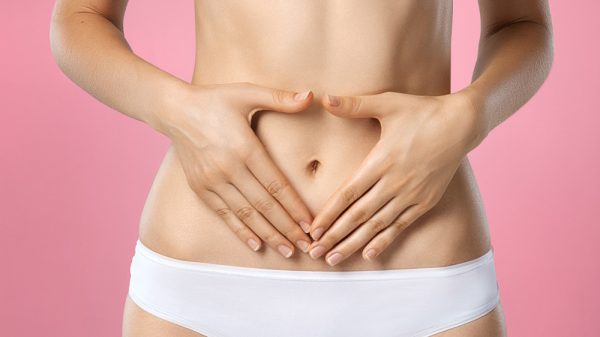“Why am I not getting pregnant?”
When trying to get pregnant, this question can go through your mind as each month passes and your period continues to show up, unwanted. It can be nerve-wracking if you don’t get pregnant right away. This feeling is completely normal and natural! Many women worry that there’s something wrong is they don’t get pregnant right off the bat. If this is you, then you’ve come to the right place. Here we go through all the possible reasons that you might not be getting pregnant, and rest assured that many are not serious and nearly all situations can be treated.
1. You Haven’t Been Trying for Long Enough
This might sound simple, but it’s actually a common reason why many couples aren’t getting pregnant as quickly as they would hope.
But how hard is it to get pregnant? Is it easy to get pregnant? Though it’s a natural process and can easily happen by mistake, it’s actually not quite as easy as you might think. many factors actually have to align in order for sperm to successfully fertilize an egg. Many women don’t realize that they are actually only fertile for a 24-hour window during each month. So how did this happen?
To understand how pregnancy occurs and why it’s actually not as easy as you might think, let’s go through the menstrual cycle. The very first day of your period is regarded as the first day of your menstrual cycle. Hormone levels shift to encourage the development of follicles on your ovaries. Follicles contain eggs, and when a follicle has fully developed, it bursts and allows an egg to travel down the fallopian tubes to the uterus, in a process called ovulation.
The journey through the fallopian tubes takes about a week, meaning that the egg reaches the uterus at about the midpoint of your cycle. When the egg is in your uterus, it is ready for fertilization. This means that during the 24 hours that the egg is in the uterus, a sperm must reach the egg in order for conception and pregnancy to occur. Because sperm can live inside a woman for several days, it’s important to have sex during ovulation. If any of this timing is a little bit off, it’s very possible that the sperm and the egg will not meet, and pregnancy will not occur.
What Can Be Done?
If you haven’t before, try tracking your cycle. Your temperature varies in each part of your cycle depending on whether you’re ovulating or menstruating. Knowing your temperature and tracking it allows you to know exactly when your ovulating. This allows you to time sexual intercourse so that you can make sure that you’re giving from the highest likelihood get to the egg at the right time.
2. You Just Got Off Hormonal Birth Control
If you have been using hormonal birth control as a form of contraceptive, your fertility doesn’t automatically come back as soon as you stop birth control. Most women need at least several months, and up to a year, to allow their systems to return to their natural cycles and make sure that their reproductive system is acclimated and prepared to support a pregnancy. So, if you stopped oral contraceptives in the last couple of months, don’t worry. Your body is simply readjusting and need a little bit more time, and this is completely normal.
What Can Be Done
If you’ve just stopped hormonal birth control, the best thing you can do for your body is to give it time to readjust. Eat healthfully, get enough sleep, exercise regularly, and give your body the time it needs to get back on track.
3. You Don’t Have Enough Body Fat
Having a low body fat percentage but you had a greater risk of not conceiving. This is because your body requires enough fat in order to power the reproductive system. When your body fat percentage is really low, the body interprets this as a type of stressor that is comparable to starvation. An extremely low body fat percentage indicates that there’s potentially not enough food and a large physical demand on the body, making it a less-than-ideal time for your body to support the growth of a baby.
If you’ve had a low body fat percentage, you may have also noticed that your period stopped. your menstrual cycle stops because there is not enough excess energy to allow for the uterine lining to thicken each month in preparation to support a baby.
If your BMI is below 18 or your body fat percentage is below 17, you may have trouble conceiving because your body is not carrying enough extra energy to support ovulation, menstruation, and a baby. Keep in mind that everybody’s body is different. For some women, a BMI of 19 or 20 might be ideal for conceiving a baby, while others may need a body fat percentage closer to 21. The idea is, though, that if you are on the edge, it’s a good idea to consider that you may not have quite enough body fat.
What Can Be Done
Usually, you can increase your body fat by simply eating more calories. if you have trouble increasing your food intake, you might benefit from caloric protein shakes that contain lots of healthy ingredients such as bananas, oats, peanut butter, soy milk, and protein powder that offers optional ratios of essential amino acids. Incorporating one or two healthy shakes each day can help make sure that you gain weight at a healthy rate. If you increase your calorie intake and you don’t notice any increase in your weight, it’s possible that you might have a few hormone issues such as hyperthyroidism. So, despite all of your efforts you find that you are unable to gain any weight, it’s a good idea to visit your doctor and figure out if there’s an underlying condition that precludes your weight gain.
4. You Have Too Much Body Fat
Just as having too low of a body fat percentage can interfere with conception and pregnancy, so can a body fat percentage that is too high. Carrying around excess body fat increases systemic inflammation and interferes with normal hormonal fluctuations. Women with a high body fat percentage are also at a higher risk of developing a hormonal imbalance called PCOS, which stands for polycystic ovary syndrome. many women with PCOS do not ovulate or ovulate irregularly. Can you get pregnant when not ovulating? No, it’s impossible to get pregnant if you are not ovulating, simply because ovulation is the process that releases the egg and exposes it to fertilization by sperm.
What Can Be Done
If a high body fat percentage is the reason for not getting pregnant, are made in cases in which weight loss and diet changes are sufficient for rebalancing hormones and achieving a healthy weight, resulting in pregnancy. To lose weight, it’s important to balance your calorie intake to ensure that the calories consumed do not exceed the calories burned. By creating a calorie deficit the body is able to utilize stored energy in order to achieve weight loss. However, it’s important to make sure that you don’t lose weight too rapidly or lose too much weight, as being balanced is very important for promoting health and pregnancy.
If PCOS is also a causal factor, weight loss and diet changes may be very helpful as well. The best diet for PCOS is one that emphasizes fruits, vegetables, whole grains, beans, seeds, lean meats, and fish. If you have PCOS, it’s very important to avoid refined carbohydrates and added sugars, which can exacerbate inflammation and lead to insulin resistance, which can interfere with normal hormonal function and prevent pregnancy.
In addition to lifestyle changes, it’s imperative to consult your physician about other interventions that can help you conceive. If you have PCOS, there are numerous helpful medications such as metformin and Clomid that can help you reduce inflammation throughout the body as well as stimulate ovulation.
5. You Exercise Vigorously
We all know that regular exercise is really healthy. But did you know that exercising too vigorously can actually inhibit pregnancy? What happens when you exercise too much? When you engage in too much exercise, such as long-distance running or intense weight training, Your body is utilizing tons of resources to power you through these big physical challenges. And I don’t mean the occasional intense workout is preventing pregnancy. This concept applies more to competitive athletes and marathon runners who engage in very strenuous exercise on a daily or almost daily basis. Your body will interpret this rigorous exercise as a sign that your body is in survival mode. Intense exercise on a very regular basis indicates play your body is under stress, and it is not an ideal time to conceive. In a way, this is your body’s protective mechanism to not expend all of its resources and energy.
What Can Be Done?
If intense vigorous exercise is the reason that you’re not getting pregnant, it’s a good idea to cut back on exercise while you are trying to conceive. Pregnancy requires a ton of energy and resources, and the body can only do one thing at a time! By cutting back on exercise, your body is saving energy and resources to instead channel towards a pregnancy instead of intense physical output.
6. You Are Under a Lot of Stress
Stress is a major culprit and numerous conditions and diseases, including fatty liver disease, cardiovascular disease, and metabolic syndrome. But did you know that stress can also play a big part in causing infertility? For example, if you are battling a physical illness, your body must use extra resources and energy to channel towards healing from the illness. Your body will not save the energy and resources for pregnancy, because the priority is to heal from the illness or injury before promoting a pregnancy. Interestingly, even if you are under psychological stress, your body has a physiological response that actually impedes reproduction. Psychological stress and anxiety play a huge role in reproductive health.
So what happens when we are stressed and anxious? When we are dealing with psychological stressors, the body actually has a hormonal response. The adrenal glands release epinephrine and norepinephrine, and the stress hormone cortisol is released into the bloodstream. If you are experiencing a chronic stressor, the levels of these hormones will remain high in the bloodstream and potentially interfere with reproductive hormones.
That, if you are experiencing chronic stress, you are more prone to oxidative stress and inflammation. What does it mean to be experiencing oxidative stress and inflammation? Essentially, oxidative stress and inflammation or manifestation of the physiological response to a chronic stressor. Overtime increase levels of cortisol, epinephrine, and norepinephrine in the bloodstream will cause cells to be overactive and produce a lot of waste. These waste products build up within cells and are called free radicals. An excess of free radicals within cells causes cellular damage because free radicals react negatively with healthy organelles within the cells.
An increase in stress levels and oxidative stress can also worsen inflammation. Inflammation is a significant culprit in a number of diseases and conditions, such as steatohepatitis and autoimmune diseases. Inflammation is a state of a hyperactive immune system. Normally, a healthy immune system’s response to foreign pathogens and cancerous cells. In reaction to the presence of these invaders or harmful cells, the immune system launches an attack to get rid of them and protect the body’s wellbeing. However, when the body is experiencing systemic inflammation, the immune system early uses higher levels of its tell than it normally should. These cells are overactive and cause irritation to a number of healthy tissues and organ systems. This information can also impact the reproductive system. with an excess of oxidative stress and inflammation in response to stress and anxiety, the body will likely naturally inhibit a pregnancy.
What Can Be Done?
Thankfully, there are a number of strategies to combat stress to help lower oxidative stress and inflammation that might be impeding pregnancy.
First, it’s important to make an effort to lower your stress levels. how can you control your stress? Here are a few tips.
- Meditation and yoga: Meditation and yoga are trendy these days, it’s for good reason. Both yoga and meditation have been shown to improve stress levels and make people feel more at peace and at ease. Meditation and yoga are excellent coping strategies for managing stressful life events and can translate to improvements in physiological signs of stress.
- Getting more sleep: Getting adequate amounts of sleep is probably one of the most difficult things to accomplish when you’re stressed. Simply being stressed contribute to racing thoughts and insomnia. We’ve all been lying in bed at night, trying desperately to fall asleep despite not being able to think about that big presentation at work tomorrow or how you’re going to resolve relationship issues or financial issues, etc. However, sleeping is absolutely fundamental to healing oxidative stress and inflammation in the body. Sleeping at least seven or eight hours a night will also help you combat stress levels and feel more confident in managing stress.
- Eating a healthy diet: Eating healthy foods actually plays a huge role in helping to mitigate the physiological effects of stress. In particular antioxidants and omega-3 fatty acids play a huge role in reversing oxidative stress and inflammation. antioxidants can be found in fruits, vegetables, whole grains, beans, nuts, and seeds, and they work by neutralizing free radicals that build up within the cells. By essentially disarming these free radicals, the body is able to fight against oxidative stress and repair organ systems from oxidative damage. Omega-3 fatty acids that are found in salmon, mackerel, flax seeds, chia seeds, and walnuts, play a significant role in reducing systemic inflammation.
7. You Have a Hormonal Imbalance
Whether it’s PCOS or another kind of hormonal imbalance, such imbalances can interfere with your ability to get pregnant. When you do get pregnant, they can also increase your risk of miscarriage and experiencing uncomfortable conditions during pregnancy, such as preeclampsia and gestational diabetes.
What Can Be Done?
Visiting your physician can help you identify the kind of hormonal imbalance that you have. You will likely be referred to an endocrinologist to determine exactly what kind of hormonal imbalance you have. Your physician will then be able to determine the best method of treatment.
8. You Have Endometriosis
The term “endometriosis” may sound scary but rest assured that it is a common condition that can be treated. Can you get pregnant with endometriosis? With proper treatment, you can absolutely get pregnant if you’ve had endometriosis. Endometriosis generally only impedes fertility temporarily, which then resolves as soon as the condition is treated.
So, what exactly is endometriosis? Endometriosis is a condition in which endometrial tissue grows on organs outside of the uterus. Under normal circumstances, endometrial tissue only grows within the uterus and thickens and sheds each month during menstruation. However, when endometrial tissue grows on ureters, fallopian tubes, or ovaries, the tissue sheds each month outside of the uterus and causes very uncomfortable symptoms. Symptoms of endometriosis include excruciatingly painful periods, irregular periods, bloating, and constipation.
What Can Be Done
If you have symptoms of endometriosis, it’s a good idea to get checked out by your gynecologist. Your doctor will be able to help identify whether you have endometriosis by using ultrasounds and other imaging devices, while also conducting a physical exam to look for any cysts that may have developed on the ovaries. Thankfully, there are a number of procedures that help treat endometriosis, restore your fertility, and increase the likelihood of conceiving. Surgical procedures are the most common interventions for endometriosis. There are different surgical techniques that can help remove endometrial growths to help restore ovulation and fertility, making it more likely that you will get pregnant. They’re also certain dietary changes that you can make it less likely that you will develop further endometrial growths.
9. Your Age
Fertility tends to decrease after the age of 35. For women, increased age means that there are fewer eggs available for ovulation. however, this doesn’t mean that you can’t get pregnant. It may just mean that you might need a little extra help if there turns out to be an issue with your fertility.
What Can Be Done
If the number of eggs associated with your age is a reason for infertility, there are a number of techniques such as intrauterine insemination or in vitro fertilization that can help facilitate the process of conceiving. Intrauterine insemination means that a physician will use your partner’s sperm and give you a targeted injection of the semen into your uterus, in order to increase the chances that it will find an egg. In vitro fertilization, on the other hand, relies on sperm fertilizing the egg outside of the body, and then a physician in plants the fertilized egg within the uterus.
10. Pelvic Inflammatory Disease
Pelvic inflammatory disease is inflammation of the female reproductive organs that is a result of a bacterial infection. The bacterial infection begins in the vagina and travels through the cervix to affect the uterus, fallopian tubes, and/or the ovaries. in the majority of cases, pelvic inflammatory disease is the result of sexually transmitted infections such as chlamydia or gonorrhea. These bacterial infections do not automatically result in pelvic inflammatory disease.
However, if they are left untreated over a long period of time, they can travel from the vagina into other reproductive organs. Sexually transmitted diseases are tricky because chlamydia and gonorrhea both present with no symptoms in many cases. The asymptomatic nature of the infections gives the bacteria the opportunity to spread and cause damage. Many women have no symptoms of pelvic inflammatory disease, but if a woman does present with symptoms, she usually has a fever, pelvic pain, and fatigue. Inflammation present from pelvic inflammatory disease often impedes the normal functioning of the reproductive system and prevents conception and pregnancy.
What Can Be Done?
Pelvic inflammatory disease can always be treated with a course of antibiotics. However, the trouble comes when the pelvic inflammatory disease has been left unattended for so long, that it has caused scarring in the uterus, fallopian tubes, and/or the ovaries. is scarring has occurred, the damage to the reproductive organs is irreparable and could potentially cause infertility.
11. Previous Ectopic Pregnancy
An ectopic pregnancy is a pregnancy in which the fertilized egg has implanted in the fallopian tubes instead of the uterus. Under normal circumstances the fertilized egg implants and the spongy tissue that lines the uterus, which serves as the perfect nest for a fertilized egg to grow into an embryo and then into a baby. However, in rare circumstances, the fertilized egg will instead implant on the side of the fallopian tube. This is an unsustainable pregnancy, and it’s left unattended for too long, it can cause irreparable damage to the fallopian tube. If the fallopian tube bursts or there any complications, the scarring and damage can impede ovulation and can lower the chances of conceiving.
What Can Be Done
If you have had a previous ectopic pregnancy, this may be a reason why you would have trouble conceiving now. Treatments I should in vitro fertilization and other fertility treatments can help increase the chances of conceiving. Consult a fertility specialist and a gynecologist to figure out what your options are and how to maximize your chances of achieving a pregnancy.
11. Your Partner’s Sperm Count and Motility Are Low
We’ve gone through nearly everything that might possibly be an issue on the female’s end. However, it is equally as likely that there is an issue with your partner’s reproductive organs! Many couples make the mistake of only looking at the woman’s reproductive system when actually there is an issue with the man’s sperm.
What to Do About It
To test the quality of sperm, visit a physician who specializes in fertility. The doctor will then be able to conduct a semen analysis to assess the concentration of sperm as well as how well the sperm are swimming. A higher concentration of sperm increases the likelihood that sperm will reach an egg. If sperm are stronger at swimming, they will also be more likely to reach an egg. If it’s found that your partner’s sperm quantity and quality are low, the fertility specialist can recommend treatments that enhance sperm production and motility.
There may also be dietary interventions that encourage improved sperm count and motility. Eating a balanced diet rich in fruits, veggies, lean proteins, whole grains, low-fat dairy, beans, and fish is always a good choice. A recent study conducted on animal models found that the essential amino acid leucine may show promise for potentially increasing sperm motility. (1)
For more information about dietary interventions for increasing sperm quantity and quality, consult a registered dietitian.
12. Structural Issues with the Reproductive System
Congenital structural problems may also be a cause of infertility. Sometimes women have issues with ovulation and the menstrual cycle because of an inherited structural issue with their reproductive organs. One of the most common structural issues that physicians encounter in relation to infertility is blocked fallopian tubes. Under normal circumstances after ovulation, the egg travels down the Fallopian tubes which are very open in line with tiny hair-like fingers that waive the egg towards the uterus. However, when a fallopian tube is blocked, the egg is unable to make its way to the uterus to await fertilization.
What Can Be Done?
Do you have a structural issue that’s preventing pregnancy, Your Position will be able to figure this out. Your doctor will administer an x-ray to examine play out of your reproductive system. Your position will be able to tell whether the shape of your fallopian tubes is conducive to egg movement into the uterus. if a blockage is found, your doctor will be able to make recommendations and perform procedures to remove the blockage from your fallopian tube and correct any structural issues.
13. Less than Ideal Diet
Amazing counterintuitive that what you eat actually really impacts your fertility. Eating unhealthy foods may cause unnecessary oxidative stress and inflammation throughout the body, impacting the reproductive system, and lowering your chances of conceiving.
What Can Be Done?
If you are eating an unhealthy diet, there are many things you can do to clean up the foods that you eat in order to promote conception and pregnancy. Here are a few tips:
- Eat your greens. Greens and other veggies are potent anti-inflammatory and antioxidant agents that help your body heal from any damage. Eating plenty of kale, spinach, broccoli, and other vegetables will neutralize oxidative stress and promote ultimate reproductive health.
- Eat lots of fruit. Like vegetables, fruits are packed with tons of antioxidants, vitamins, and minerals. Eating a variety of fruit fuels your body with the micronutrients that it needs to repair any oxidative stress and fight against inflammation, priming your reproductive system for conception and pregnancy. Great fruit choices include blueberries, strawberries, watermelon, cherries, apples, oranges, and blackberries.
- Enjoy whole grains and beans. Whole grains and beans are packed with healthy fiber, protein, and antioxidants that help promote biochemical balance throughout your body.
- Stay away from refined carbs and added sugars. Refined carbs and added sugars can seriously impede normal hormonal function and contribute to hormonal imbalances such as those that are characteristic of PCOS. Staying away from refined carbs and added sugars means avoiding foods such as cakes, cookies, candy, pastries, white bread, white rice, and white pasta.
- Get high-quality protein. Lean proteins, fish, and low-fat dairy offer balanced ratios of essential amino acids that help promote healthy immune system activity, muscle synthesis, and enzyme production. Getting optimal ratios of essential amino acids may also play a role in healthy hormone function.
- Take a prenatal vitamin. Prenatal vitamins contain a perfect balance of vitamins and minerals to promote conception and healthy pregnancy. Make sure you choose a high-quality brand to protect your health.
14. Alcohol, Caffeine, or Smoking
If you consume alcohol, drink caffeine, or smoke on a regular basis, these habits may be impeding your ability to get pregnant. Alcohol and tobacco directly cause oxidative stress and inflammation in multiple organ systems, while excess caffeine intake can cause elevated levels of hormones that may cause oxidative stress.
What Can Be Done?
If you are used to having a glass of wine at night, try gradually tapering down your consumption. Even if you have to measure it out each night, it can help you cut down until you gradually are consuming no alcohol. If you want to enjoy a relaxing drink in the evening, try indulging in some nonalcoholic wine, which happens to be rich in antioxidants without the alcohol. Similarly, if you rely on coffee in the morning, try replacing coffee with antioxidant-rich decaffeinated green tea. Smoking habits must also stop. If you struggle with any of these changes, speak to your physician about effective ways to manage and cut back on your habits, in order to promote fertility.
15. Medications
Sometimes, certain medications may impact your ability to conceive. Sometimes, certain psychiatric medications such as those used to manage ADHD or depression can get in the way of reproductive function.
What Can Be Done?
Discuss your medications with your doctor to determine whether any medications your taking may inhibit conception. It’s also a good idea to discuss whether your medications should be taken during pregnancy. If your medications are playing a role in preventing pregnancy and are not safe to take during pregnancy, your physician will be able to prescribe effective alternative treatments that help you maintain your quality of life while also promoting a healthy pregnancy.
Visit Your Physician
At the end of the day, if you are really about your ability to conceive, it’s always a good idea to visit your doctor and make sure that your reproductive system is healthy and prepared to conceive and carry a baby.
Keep in mind that infertility cases usually have causes, but not always. Sometimes, there is a scenario called unexplained infertility, and despite investigating every possible cause, there is no identifiable medical explanation for infertility. Still, in all cases, rest assured that there are fertility treatments that can help you conceive.
Conclusion: Why Am I Not Getting Pregnant?
If it’s been less than a year and you are trying to get pregnant, rest assured that it’s normal for it to take up to a year of unprotected sex in order to achieve pregnancy. It’s a good idea to check in with your doctor to make sure that there is nothing impeding pregnancy and to put your mind at ease. Medical treatments combined with the tips above can help you make sure you get that positive pregnancy test as soon as possible.

References:























